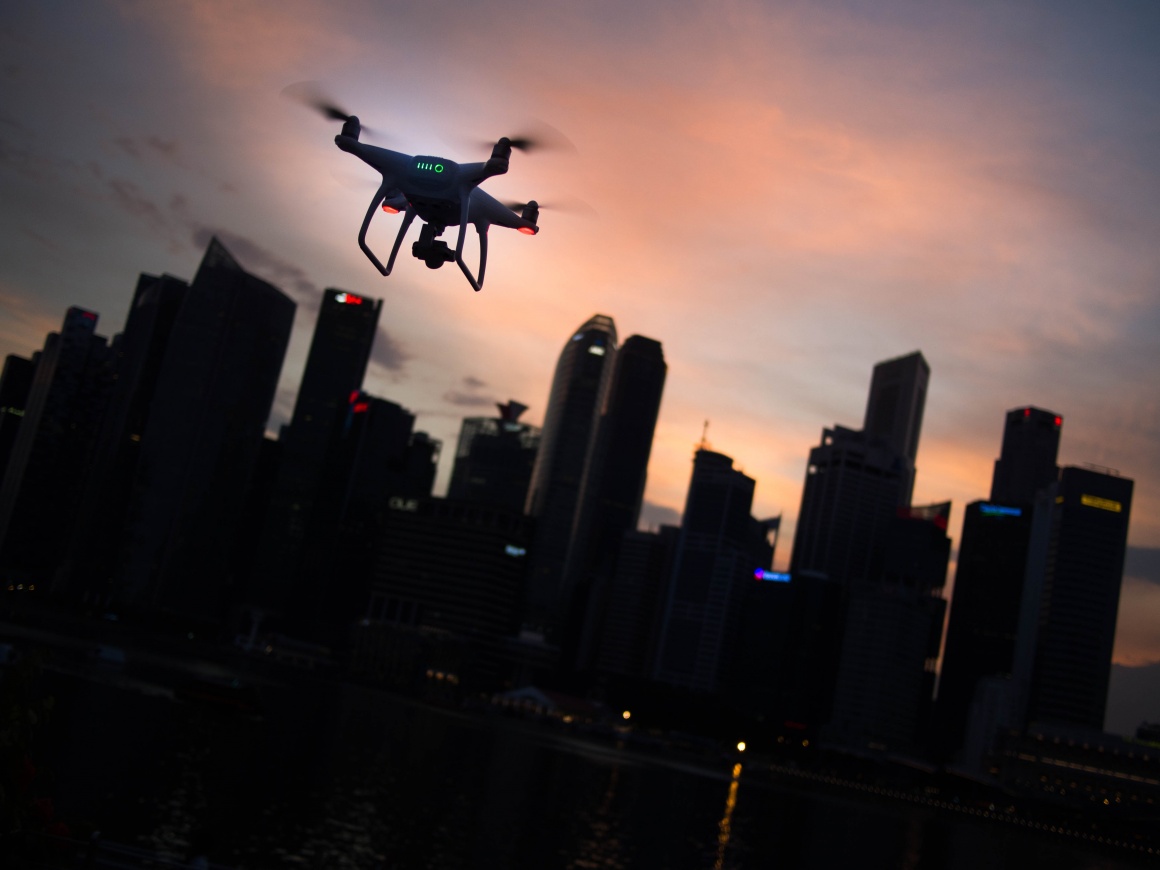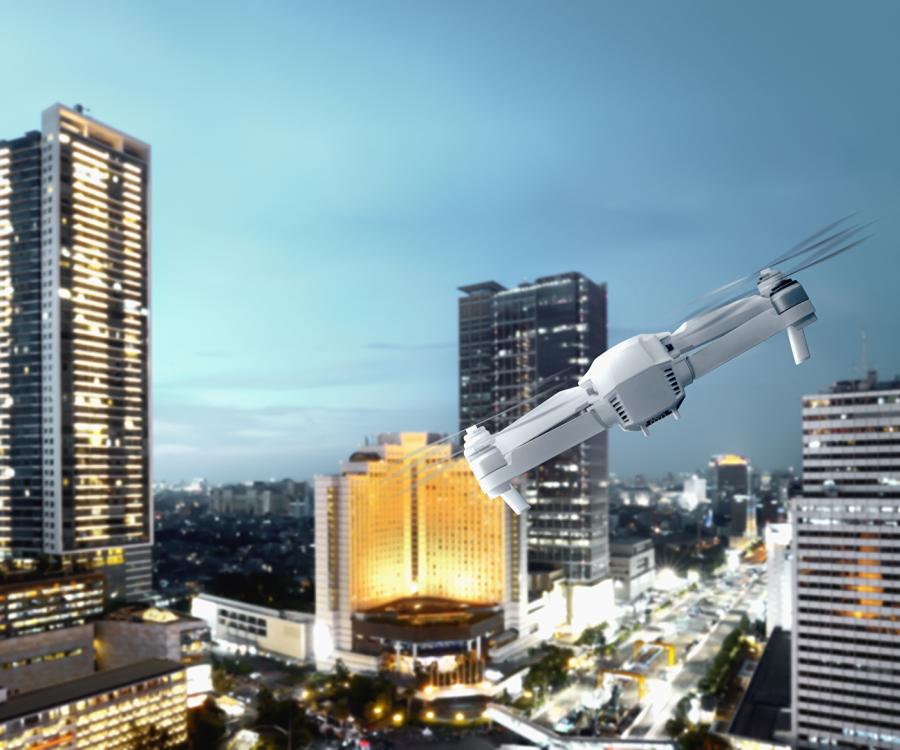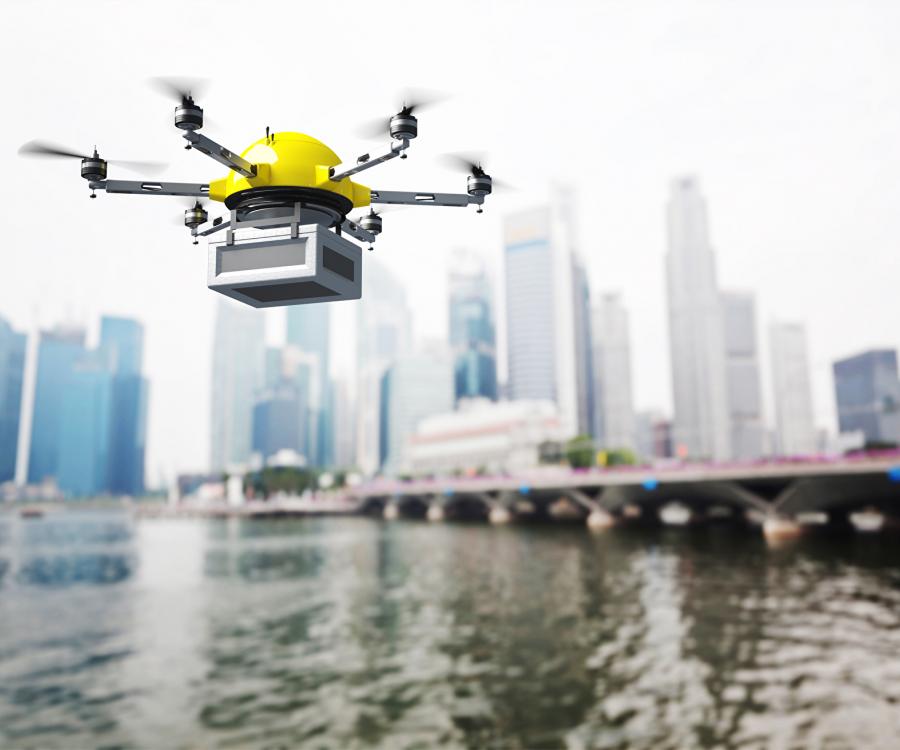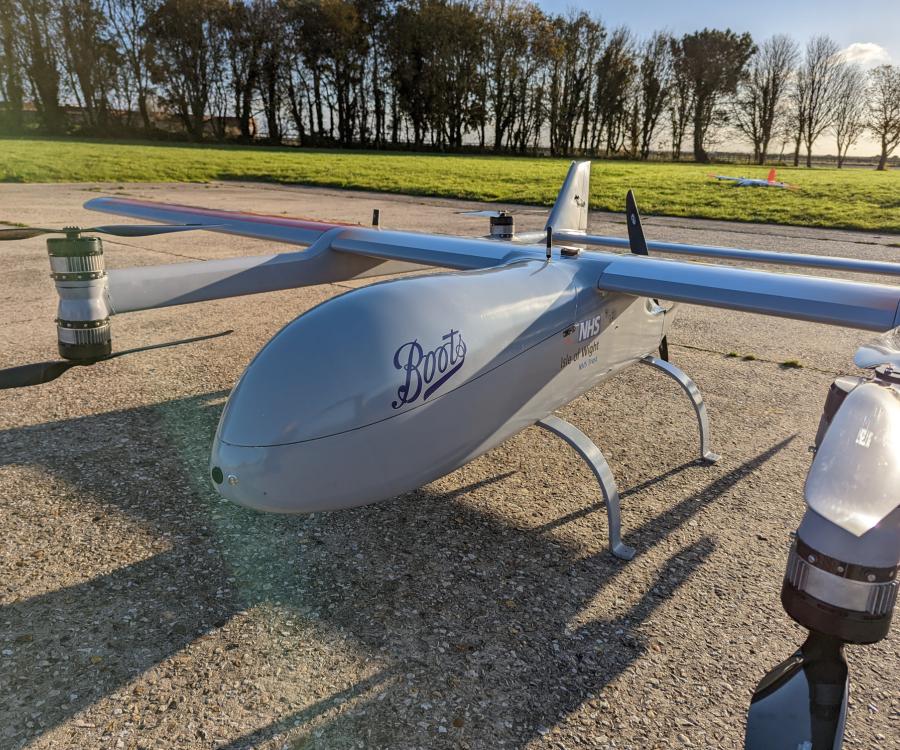
Researchers at The University of Texas at Dallas say drone technology has the potential to be a genuine game changer in the retail industry, with its promise to enable retailers to offer unheard-of delivery lead times and near-perfect delivery-time customization adaptability.
In a new study, three faculty members from the Naveen Jindal School of Management explored how drone delivery could change retail logistics networks. The paper focuses on the use of customer-facing delivery centers, also known as last-mile warehouses.
Dr. Milind Dawande, professor of operations management and one of the paper's co-authors, said last-mile retail delivery via drones is being viewed as a truly disruptive technology. Retailers worldwide are pursuing approaches to enable faster delivery, and drones arguably represent the most encouraging technological innovation toward this goal, he said.
The study found that both the number of last-mile warehouses and the delivery speed of the drones will increase as technology matures. In other words, last-mile delivery networks will become more decentralized, with drones operating at increasingly faster speeds.
The analysis also showed that while perfect customization of delivery-time guarantees is more profitable, retailers can capture a sizeable portion of the profit by partitioning their market into a few zones and offering the best-possible delivery-time guarantee for each zone.
"If a retailer promises each customer a different delivery time based on the customer's location, that would be perfect customization," Dawande said. "For example, a retailer could give any customer who is 1 mile away a delivery-time guarantee of five minutes and a customer 1.5 miles away a delivery-time guarantee of seven minutes. While perfect customization is theoretically best for the retailer, it is impractical. Instead, the retailer might offer all customers less than 5 miles away a guaranteed delivery time of 15 minutes. "In other words, limited customization is good enough."
Faster delivery times are more profitable because it implies more demand, Dawande said. Customers' needs are time-sensitive. For example, if a retailer promises delivery of a book in 15 minutes, the demand is likely to go up, as compared to a three-day delivery promise.
The researchers note that increasing delivery speed of drones can help improve profitability only if it is accompanied by an increase in the number of last-mile warehouses. Therefore, in congested markets, where the number of warehouses cannot be increased, the retailer may find it best to offer a delivery speed that is lower than the highest-possible speed.
Before drone technology can become widely adopted, however, privacy and safety issues need to be solved, Dawande said, as well as regulations coordinating drone travel and the public perception of fleets of drones flying overhead. The paper points to pilot programs testing the technology.
"It would be reasonable to assume that drone technology is maturing quickly, and we should see a commercial rollout on a larger scale in the not-too-distant future. The COVID-19 pandemic will perhaps hasten this process," said Dawande, who is also the Mike Redeker Distinguished Professor in Management.





